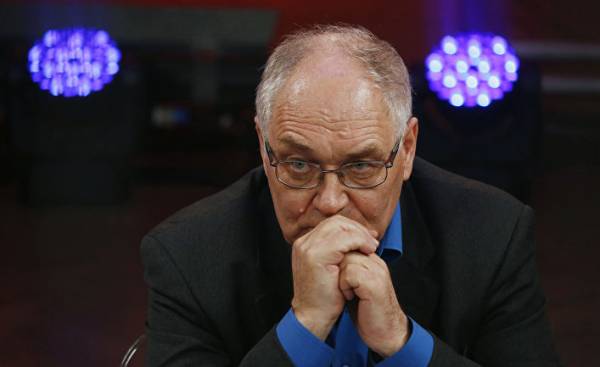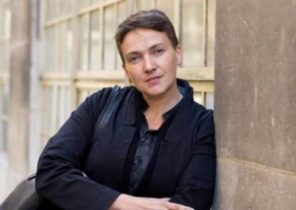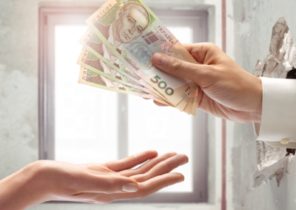
To Lev Gudkov, it became a hit: last fall, “Levada-Center”, the last independent social Institute in Russia, which he has headed for 11 years, was declared a “foreign agent”. Renowned sociologist explores how changing post-Soviet society, and notes that the past still affects people in Russia, including on the younger generation. Now 70-year-old sociologist wants to achieve the exclusion of the Institute from “list of foreign agents.”
DIE WELT: IN March 2018 in Russia will be held presidential elections. Still Vladimir Putin says he will think whether he will take part in them. If you look at the poll results, is there any sense in such tactics?
Lev Gudkov: this coquetry? Yes, the less he says, the more stable is the attitude to it. The propaganda machine is already running. Putin is constantly present in the media. All visits in detail report. Hours “hot line” or his meeting with children was broadcast live. On the TV show, as he gives instructions to officials. State populism plays an important role. The results of our surveys we see that the willingness to vote for him is gradually increasing: from about 40% in January to 63-65% at the moment. This is quite a strong mobilization. And now he forces himself to wait. The people must him to ask that he continued on Board. This is the clear preparations for the elections. This creates the impression that no alternative to it.
— What people are saying about Putin’s policy?
Most important for Putin, his foreign policy achievements. He plays the symbolic role of leader of the nation, which advocated national unity, security and international prestige. This causes a feeling of pride, do not want to say whether justified, arrogant, whether legitimate or false pride, but what it is is a fact. Foreign policy is one area in which the vast majority of the population believes that Putin has achieved a great success. The consequences of confrontation with the West, the annexation of Crimea, the war in the East of Ukraine and in Syria. In domestic politics he soon failed: no growth economy, corruption, terrorist threat, which is still not disappeared. But, as often happens in dictatorships and authoritarian regimes, the responsibility is shifted to others — the government or the governors.
How about the anti-corruption protests of opposition leader Alexei Navalny?
They find little support, although the issue of corruption is important for people. But it is perceived as a familiar evil. One scandal comes after another. According to my calculations, every year there are between 850 and 900 messages that civil servants prosecuted. This creates the image of a corrupt state apparatus — this opinion is shared by about 80% of Russians. But corruption, as the climate in Russia is cold in winter. Individual stocks, such as those that conducts Bulk, find support, but a small group of the population.
— What are the chances would be the Bulk, in the presidential election?
— Navalny is a very talented politician. Unlike other opposition leaders, he in the difficult conditions of medicinally has created his own network. For two years, learned about it 55-56% of Russians. But positively it is estimated only 6-7%. Against it works as a powerful mechanism of propaganda. It is very effective, especially in the provinces. Bulk positively assessed mainly in the big cities. In Moscow, it supports almost every fourth that very much. In Russia as a whole for him would have voted 3-4%. Of those who are willing to go to the polls, it would have amounted to no more than 10%.
After two protests, the impression that its main support comes from young people. Growing up the new, fearless generation?
— I think that’s a distorted perception of journalists. Most of Navalny supporters from 25 to 40 years. In the latest protests were actually a large number of young people. But that’s not the whole generation, and, above all, children from middle-class, who adopted the values of their parents. In the last two or three years, a new wave of patriotism in schools again started to impose to children the ideology. Young people in large cities perceive this as violence. Hence the resistance on the one hand the moral, the other aesthetic protest. But it is a very thin layer, 2 to 3% of all young people.
— And the rest of Russian youth?
Young people actually tend to support Putin. They grew up under Putin and was the most highly susceptible to propaganda. The ability to travel freely, to have fun, Internet, high quality of life — for them it is all perfectly natural. Unlike the older generation, they don’t know what all it was worth. And at the same time, among young people in the province more intense the inferiority complex after the collapse of the Soviet Union. They have a sense that life has become better, Russia became a normal country. But in spite of this, at international level, the country does not recognize normal, and seen as a backward, almost as a gangster state. That lack of recognition is perceived very painful, especially among young people, which need such confirmation.
— This occurs despite the fact that more and more people have access to alternative sources of information?
— You can lead a horse to water, but you cannot make it drink. Many people do not want to get alternative information, because it didn’t fit their ideas. Propaganda more convincing. And even if people do not believe the propaganda, they have no alternative picture of reality. Propaganda says that the us is better than in the West, she says that life is the same everywhere heavy. It is very effective. It suppresses all hope for change and willingness to participate in political life. More than 80% of Russians say they have no influence on policy. But when asked if they would like to have such an impact, most of the answers — no.
— People do not want to change the government?
— No clear opinion. They say, basically, “Yes, the rulers must change, but in the specific situation better if Putin remains in power.” With him are the hopes for economic stability, the growth, which was from 2002 to 2012.
Every conflict makes Putin more popular?
Every conflict throws the country back to isolation: the refusal to change, the willingness to continue to endure. This leads to a consolidation of power. The Russian society for the most part Soviet — closed and with a strong militaristic attitude. Propaganda is not only discreditied such Western values like liberalism, democracy, human rights and dignity. Revived the views of the Soviet Union, for example, that the West is hostile and you have to sacrifice everything and to suffer for the sake of national security.







